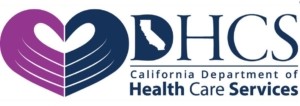Concerta Overdose Dangers
Table of Contents
Concerta Symptoms And Warning Signs
Concerta overdose symptoms must be taken seriously. Call for help right away if you or a loved one has overdosed on Concerta.
Concerta is a stimulant drug that is helpful for people that have ADHD or narcolepsy. It is in the same drug class as Ritalin. But just like other stimulants when abused for other purposes, Concerta use can lead to addiction. It can also put someone at risk of an overdose, which can be fatal.
What is Concerta?
Concerta (methylphenidate) is a stimulant that can help patients with ADHD by curbing tendencies toward impulsive behaviors and being distracted. Concerta shares a similar chemical make-up as cocaine and meth. This drug’s effects can increase focus, attention, and energy, making it a favorite drug of abuse for students. They are able to study longer and sleep less when taking the drug.
Concerta works by increasing levels of dopamine and norepinephrine in the central nervous system. The dopamine response is reinforcing within the brain’s reward system. This is what leads to the cravings and abuse, which create the addiction cycle. Concerta is a DEA Schedule II controlled substance due to its addictive properties.
Concerta Abuse
When Concerta is used outside of a doctor’s prescription it becomes a substance of abuse. People may secure the drug by buying it off of other students, finding online sources for the drug, or off the street. Some people may feign symptoms of ADHD to obtain an Rx from a doctor.
Stimulants like Concerta are sought after as an aid for keeping up with college coursework, although that is not the only draw. The three main reasons for Concerta abuse include:
- Study aid: The stimulant property of Concerta increases focus and concentration levels, as well as alertness and energy level. College-age students most often abuse this class of drugs.
- Weight loss: Stimulants suppress the appetite, so some will abuse Concerta as a means of losing weight.
- Euphoric effect: Concerta activates the reward system in the brain, as the increased dopamine levels are associated with pleasure. This causes the drug to provide a high when used off label, which doesn’t occur with ADHD patients.
Signs of Concerta Addiction
Addiction to Concerta happens fairly quickly. With continued use the drug causes brain pathways to be altered, leading to dependency or addiction.
Some of the signs of Concerta abuse or addiction include:
- Relationship problems, as the drug takes center-stage in your life.
- More time is spent trying to acquire the drug.
- Desire to limit use, but can’t stop using the drug.
- Lack of control over use.
- Constant cravings for the drug.
- Need more and more of the drug to achieve the high.
- Ignore responsibilities.
- Obsess over getting the next high.
- Spending more money than you can afford on Concerta.
- Sudden weight loss.
- Insomnia
- Withdrawal symptoms when Concerta effects wear off.
When someone first tries Concerta, they may assume it is a harmless drug, just something to help them study at school. But stimulants can quickly create a psychological addiction. For instance, they might believe that grades will suffer, or weight will be gained if they stop using it.
The line is crossed from abuse to addiction when the individual attempts to discontinue taking Concerta and experiences very unpleasant withdrawal symptoms. If the withdrawal symptoms are severe enough, the user will begin craving the drug in order to extinguish the unpleasant withdrawal symptoms.
Concerta Overdose Symptoms
Abuse of Concerta can increase the risk of an overdose. Some may grind up the pills and snort the drug. This causes a faster, more intense high, and can lead to very high doses. Another risk of overdose occurs when the drug is taken along with other substances like alcohol.
An overdose of Concerta can be life threatening. Call for help right away if someone shows the signs they may have taken a toxic dose. Common Concerta overdose symptoms include:
- Vomiting
- Twitching
- Convulsions
- Agitation
- Increased heart rate.
- Increased blood pressure.
- Heart arrhythmia.
- Dry mouth.
- Manic-like state.
- Psychoses
- Aggression
- Compulsive behaviors.
- Hallucinations
- Delusions
- Paranoia
- Disorientation
Treatment for a Concerta overdose will be based on how much of the drug and how it was taken. Also, doctors will ask if any other substance was involved. There are meds that can help slow a rapid heart rate or to increase blood pressure that has dropped too low. Gastric lavage may help flush out the balance of the drug that is still in the stomach.
Concerta Withdrawal
Concerta withdrawal is best managed via a medical detox program. This involves being placed on a drug taper plan where reduced doses are given over a certain time period. This allows the body to slowly adjust to the reduced levels of the drug in the system. This measured dosing over time helps soften the withdrawal symptoms.
Withdrawal symptoms include:
- Fatigue
- Feeling hostile.
- Depression
- Paranoid thoughts.
- Depression
- Nightmares
- Agitation
- Increased appetite.
The detox timeline involves three distinct phases:
Phase 1. Symptoms emerge within 12 hours of the last dose. During this phase symptoms include mood swings, irritability, nausea, fever, chills, headache, and cravings.
Phase 2. During days 3-5 the symptoms will peak, including extreme fatigue.
Phase 3. From 7-14 days the symptoms will subside, although fatigue and cravings may persist.
Treatment for Concerta Addiction
Anyone can become addicted to Concerta, but young adults tend to be the most affected. Because the drug is often sought out and used as a “study drug” in this cohort, so the treatment plan will address this. Treatment will include teaching new study habits and behaviors that will aid the student in completing assignments without the use of Concerta.
Inpatient therapy offers many different treatment therapies and options, including:
- Group counseling.
- One-on-one therapy.
- 12-step programs.
- Classes that teach recovery skills and coping techniques.
- Yoga, art therapy, and meditation.
If you or a loved one is abusing Concerta, the risk of an overdose is very real. To overcome Concerta addiction, expert detox and treatment support is needed. Get the help you need today.
Dana Point Rehab Campus Provides Detox and Treatment for Concerta Abuse and Addiction
Dana Point Rehab Campus is an addiction treatment center that can assist you in breaking the grip of a Concerta addiction. At DPRC, our team is devoted to helping you learn new coping skills to live a life without stimulants. Ask about our program by calling (888) 509-1751.









Leave a Reply
Want to join the discussion?Feel free to contribute!